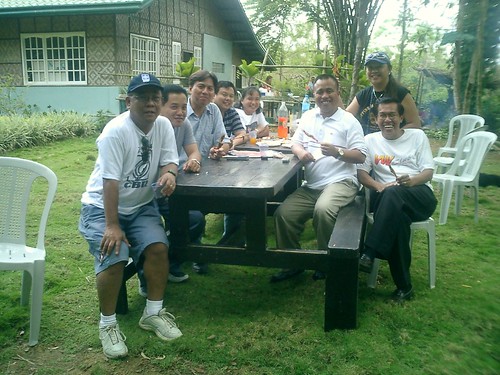Editorial : Balance
Inquirer News Service

Both men were focusing on a development that is increasingly becoming evident in the current political crisis. That is the effort by people from all walks of life to separate the question of a person's fitness for office from the broader responsibilities of the public for the continuation of a system that leads to questionable-and questioned-leadership.
Of course, this naturally leads to the question of whether or not the President is correct in saying the problem is the system and not her. But was that what both the archbishop of Manila and the departing American diplomat were saying?
No. Ms Arroyo cannot focus on the system without facing up to her role as leader of that system. Resolving the question of the President's fitness for office is, in fact, the first step toward beginning the process of instituting far wider, and deeply needed, change.
It might be more accurate to interpret the statements of Mussomeli as being representative of the interests of the nation he serves. The United States craves stability among its allies and does not want additional problems from allies going through some political turmoil. The United States is also interested in having the outcome of the political crisis reflect American values-and influence-in a positive, and not a negative, manner. This ties in with the dominant ideology of the Bush administration, which views democracy as an essential tool for perpetuating American influence and power.
On the other hand, the Manila archbishop is grappling with the problem of a local Catholic Church that has lent a moral dimension to people power in the past, and a Church that has insisted that governance should reflect Christian principles in action. Despite playing a major role in both Edsa People Power I and II, the Church has failed -- and has admitted its failure -- to achieve a long-lasting and effective transformation both among the leaders and the governed. It has helped provide the symbols for people power; it is now trying to figure out how it can contribute to a more lasting effect for people power.
In their messages to the Filipino public, both these men reflect the particular interests of the organizations to which they belong: in Mussomeli's case, his government; in Rosales' case, the Catholic Church. The reaction of the public should be as critical as it is appreciative, in that both messages do provide food for thought. However, neither message should be uncritically accepted, or unthinkingly rejected out of hand.
It is clear that an effort is under way among many sectors in society to think and plan for the future. Part of that process includes looking back at the past, but also not looking superficially at the present. The challenges the nation faces certainly go beyond political spin, or the interpretations or arguments of any one leader or institution.
The danger of having an overly institutional bias toward the present crisis is that it ignores the human, and thus moral, dimension necessary to achieve a fair, and lasting, positive outcome. Everyone, we believe, wants this crisis to result in a better Philippines. That will come only if a balance is found between judging the political fortunes of one individual and determining our collective fate, through a system or reforms to the system we arrive at as a whole, not put in place by one faction obsessed with winning over others. There are warnings that are too important to assess superficially or answer with sound bites.







No comments:
Post a Comment